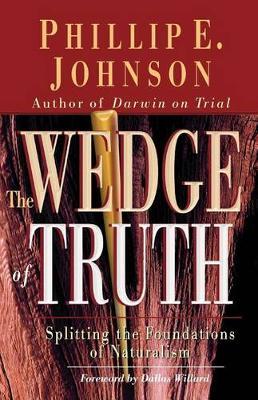Overview
A 2001 ECPA Gold Medallion Award winner A 2001 Christianity Today Award of Merit winner Science is the supreme authority in our culture. If there is a dispute, science arbitrates it. If a law is to be passed, science must ratify it. If truth is to be taught, science must approve it. And when science is ignored, stroms of protest are heard in the media, in the university--even in local coffee shops. Yet a society ruled by science (and the naturalistic philosophy that undergirds much of it) faces major problems. Science speaks so authoritatively in our culture that many are tempted to use its clout to back claims that go beyond the available evidence. How can we spot when such ideological slight of hand has taken place? More important, while we may learn a great deal from science, it does not offer us unlimited knowledge. In fact, most scientists readily acknowledge that science cannot provide answers to questions of ultimate purpose or meaning. So to what authority will we turn for these? The deficiencies in science and the philosophy (naturalism) that undergirds it call for a cognitive revolution--a fundamental change in our thinking habits. And it all begins with a wedge of truth. This wedge of truth does not ""wedge out"" a necessary foundation of rational thought. But it does ""wedge in"" the much-needed acknowledgment that reason encompasses more than mere scientific investigation. Phillip E. Johnson argues compellingly for an understanding of reason that brings scientific certainty back into relational balance with philosophical inquiry and religious faith. Applying his wedge of truth, Johnson analyzes the latest debates between science and religion played out in our media, our universities and society-at-large. He looks to thinkers such as Newbigin, Polanyi and Pascal to lay a foundation for our seeing the universe in a totally different way. And from that base he then considers the educational programs and research agendas that should be undertaken--and have already begun in some earnest--during this new century. In the end, Johnson prophetically concludes that the walls of naturalism will fall and that the Christian gospel must play a vital role in building a new foundation fro thinking--not just about science and religion but about everyhting that gives human life hopeand meaning.
Full Product Details
Author: Phillip E. Johnson ,
Dallas Willard
Publisher: InterVarsity Press
Imprint: Inter-Varsity Press,US
Edition: Special Edition
Dimensions:
Width: 14.00cm
, Height: 1.40cm
, Length: 21.00cm
Weight: 0.218kg
ISBN: 9780830823956
ISBN 10: 0830823956
Pages: 192
Publication Date: 02 August 2002
Audience:
College/higher education
,
Professional and scholarly
,
Undergraduate
,
Postgraduate, Research & Scholarly
Format: Paperback
Publisher's Status: Active
Availability: In Print

This item will be ordered in for you from one of our suppliers. Upon receipt, we will promptly dispatch it out to you. For in store availability, please contact us.
Reviews
By asking the right questions, Phil Johnson brilliantly exposes the fault lines of the reigning Darwinian orthodoxy and challenges its disciples who preach philosophical naturalism under the guise of science. The Wedge is a must-read. Witty, engaging and insightful, it cuts to the heart of the most crucial issue of our day. --Charles Colson
A helpful, challenging resource. . . . Should have credibility even for readers outside [Johnson's] primarily Christian audience. --Publishers Weekly, July 24, 2000
Author Information
Phillip E. Johnson taught law for more than thirty years at the University of California--Berkeley where he is professor emeritus. He is recognized as a leading spokesman for the intelligent design movement, and is the author of many books, including Darwin on Trial, Reason in the Balance and Defeating Darwinism by Opening Minds. Dallas Willard (1935-2013) was a professor in the School of Philosophy at the University of Southern California in Los Angeles for over forty years. A highly influential author and teacher, Willard was as celebrated for his enduring writings on spiritual formation as he was for his scholarship. His books include The Divine Conspiracy (Christianity Today?s Book of the Year in 1998), The Spirit of the Disciplines, Hearing God, Renovation of the Heart and others. His books have received numerous Christianity Today Annual Book Awards and other recognitions. Willard served on the boards of the C. S. Lewis Foundation and Biola University, and was a member of numerous evaluation committees for the Western Association of Schools and Colleges. He received bachelor?s degrees from both Tennessee Temple College and Baylor University and a graduate degree at Baylor University, as well as a PhD from the University of Wisconsin in Philosophy and the History of Science.



